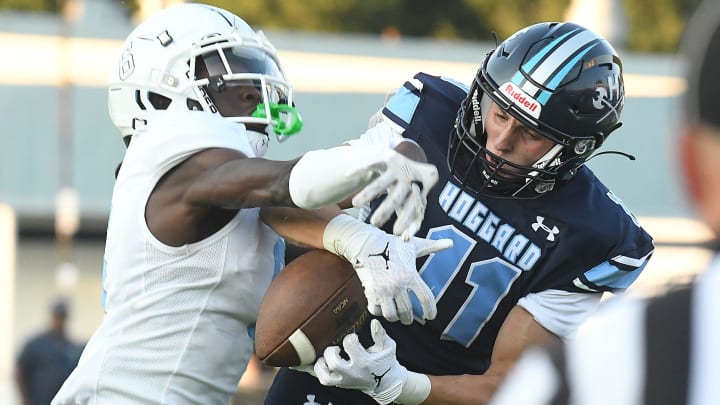North Carolina Decides to Ban NIL Opportunities for High School Athletes

There are tons of states across the country who have legalized allowing their high school athletes to profit on their Name, Image and Likeness after Florida was the most recent to put that into effect.
Everything changed when the NCAA allowed their athletes to profit from NIL, changing the entire landscape of amateur sports going forward.
Because of that, it's extremely rare for states to not follow suit.
But, North Carolina won't be one of those states who change how they operate at the high school level.
According to Jeremy Crabtree of On3, the North Carolina Board of Education came out of their meetings that took place from June 5-6 revealing they are still prohibiting NIL activities for student-athletes who want to play sports at a public high school.
That includes public appearances or commercials, autograph signings, athletic camps and clinics, sale of non-fungible tokens (“NFTs”), product or service endorsements, and promotional activities, including in-person events and social media advertisements.
It's now clear if players want to participate in athletics for public high schools within the state of North Carolina, they are not allowed to benefit from NIL.
It will be interesting to see how this affects public sports in the state.
With families being much more willing to move so their kids can be in a better position to earn collegiate opportunities or make money through NIL, there's a chance some of the top talent will flee and enroll in schools elsewhere.
However, this does not affect those who are attending private schools.
Crabtree notes the North Carolina Independent Schools Athletic Association (NCISS) changed the rules in their handbook for the upcoming season that allows their student-athletes to profit from their NIL while still maintaining eligibility.
This could make some of the top public school players transfer to private schools within the state.
5-star quarterback Faizon Brandon who is the No. 2 ranked player in the state reacted to this ruling with a post on his social media account.
"I currently attend a public school in NC and I really hope this law changes for me and other athletes that attend public schools in NC!" he wrote.
Parents of kids attending public schools in North Carolina are frustrated, incuding former Carolina Panthers star linebacker Thomas Davis whose son is currently enrolled in public high school within the state.
"I just think that if you're going to allow it for one particular set of kids, then it shouldn't be allowed for all of them. And if it isn't going to be allowed for everyone, then nobody shouldn't be able to do it. I think we have enough states that have got on board with the whole NIL structure at the high school level, and they've done it the right way. They opened it up for all the kids, and they didn't make it biased to one particular group. That's the same formula North Carolina should follow in order to keep things fair," he said.
This is more evidence of how the NIL landscape is still not fully figured out for everyone, including at the NCAA level as battles in court continue to rage on to determine how this new aspect should be used.
